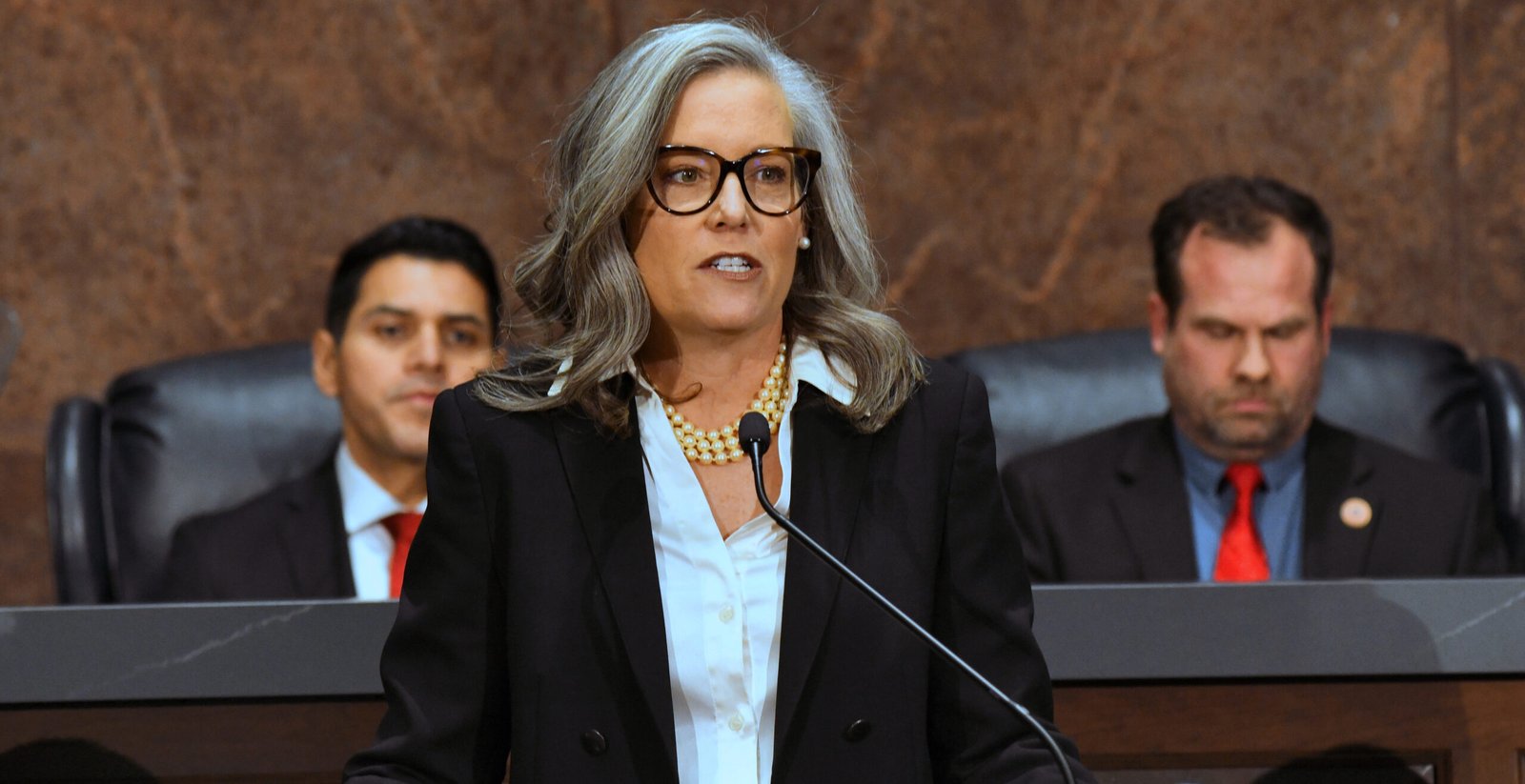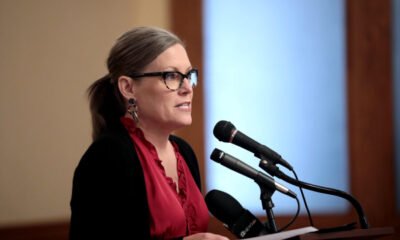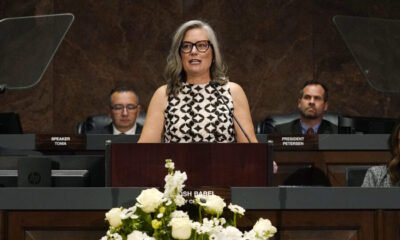Entertainment
Bipartisan Cheers for Hobbs’ Bold Homeless Vets Initiative

Governor Katie Hobbs has unveiled a budget plan aimed at reducing homelessness among veterans in Arizona. The proposal, presented during her State of the State Address, has been met with optimism from veterans’ advocates and state lawmakers alike.
On January 17, Hobbs detailed her budget request, which includes $5 million for the Homes for Heroes Fund. This initiative seeks to create a comprehensive statewide strategy focusing on housing solutions, counseling, and social services tailored for homeless veterans. The funding will also support community organizations through grants, enabling them to broaden their service offerings. The plan is set to take effect in the 2027 fiscal year.
Addressing homelessness among veterans has gained bipartisan support. Lawmakers from both parties are collaborating with advocacy groups and nonprofits that have long been involved in this cause, providing essential services such as food, mental health support, and transitional housing.
“Veterans housing is a concern everywhere, regardless of the state,” remarked Representative Stacey Travers, D-Phoenix. An Army veteran herself, Travers has sought funding for veterans’ housing and has been working closely with the Arizona Department of Veterans’ Services.
Travers expressed her appreciation for the governor’s commitment, stating, “The governor cares deeply about veterans and veterans’ issues. I’m glad to see her investing in our veteran community.”
According to the 2024 Point-in-Time Count Report from the Maricopa Association of Governments, the number of homeless veterans in Arizona has decreased by 13% over the past year, totaling 440 individuals. This drop indicates progress, but significant challenges remain.
Homeless veterans often face unique obstacles. Issues such as PTSD are exacerbated by a lack of access to necessary medications and services. “When they’re homeless, they often can’t obtain their medications,” noted Representative Walt Blackman, R-Snowflake, an Army combat veteran. “The burdens of homelessness add to their struggles.”
Blackman has also introduced HB2393, a bill proposing an additional $5 million from the state general fund to expand a warming center for veterans in Payson. He believes that addressing veterans’ needs is a shared concern that transcends political affiliation, stating, “This isn’t a partisan issue. I welcome any ideas to help veterans.”
Obstacles to assistance include a lack of awareness regarding available services. Michelle Jameson, executive director of U.S.VETS Phoenix, highlighted that some veterans may not fully understand their benefits or may feel that others are more deserving of support, leading them to decline necessary assistance.
U.S.VETS collaborates with various agencies to facilitate veteran enrollments in benefit programs. Their services span from transitional housing to rental assistance, alongside mental health and substance abuse treatment.
Local governments have also made strides to aid homeless veterans. In Glendale, officials are partnering with the Maricopa County Human Services Department and the Veterans Community Project from Kansas City to establish 50 transitional housing units on city-owned land. Initial plans include constructing eight to ten cottages before expanding further, as stated by Glendale Mayor Jerry Weiers.
A groundbreaking ceremony for the project is scheduled for February 1, expected to include the governor’s remarks. Weiers expressed confidence in Hobbs’ commitment, asserting, “We both can do everything we can to make sure that we take care of that issue.”






![Members of the Arizona House of Representatives vote during a third reading of nearly three dozen bills at the Arizona State Capitol on March 4, 2025. [Monica D. Spencer]](https://arizonanews.org/wp-content/uploads/2025/06/SR-347-Secures-53M-in-Third-State-Budget-Draft-Awaiting-400x240.jpg)
![Members of the Arizona House of Representatives vote during a third reading of nearly three dozen bills at the Arizona State Capitol on March 4, 2025. [Monica D. Spencer]](https://arizonanews.org/wp-content/uploads/2025/06/SR-347-Secures-53M-in-Third-State-Budget-Draft-Awaiting-80x80.jpg)









